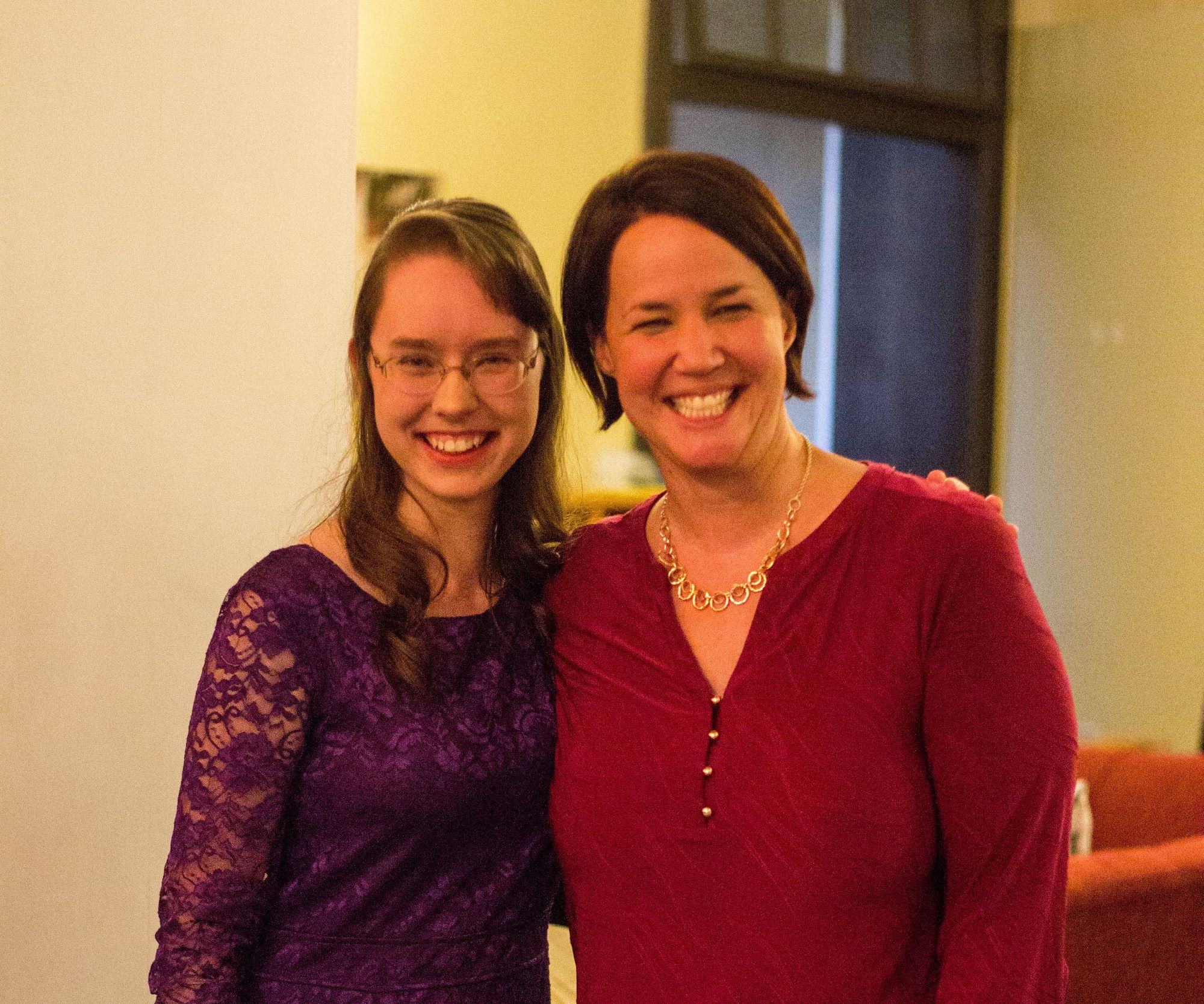We would like to thank Makayla Stevenson for this tribute to her teacher, Janet Tschida. As we continue the season of gratitude and giving, we pay tribute to piano teachers from around the country who are transforming the lives of their students. Students, parents, and colleagues are honoring piano teachers from their communities as part of the “Power of a Piano Teacher” campaign. We welcome you to celebrate your own teacher by sharing a tribute with us and donating to The Frances Clark Center.

“Students don’t learn because of what teachers say. Students learn because of what teachers have them DO!” Three years after completing my undergraduate degree, Janet Tschida’s words replay in my mind, reminding me of the influence that we as piano teachers can have in the lives of our students.
Residents of Watertown, Wisconsin know Janet Tschida as associate professor at Maranatha Baptist University and director of Maranatha Music Prep School, the community’s music education program. Maranatha Music Prep School is uniquely structured to allow pedagogy interns from the university to teach local students, providing undergraduate students with valuable teaching experience and fostering connections in the community.
As a piano pedagogy graduate of MBU and an intern at the prep school, I had the privilege of gleaning from Miss Tschida’s wisdom, knowledge, and experience almost daily for four years. As I reflect on what she has imparted to me and countless others, three words come to mind: vision, dedication, and multiplication.
Janet Tschida taught us to see beyond the four walls of the music studio. She, like Frances Clark, taught us that as teachers, we teach the student first, music second, and piano third. Miss Tschida may teach in a small town in the Midwest, but her vision is global and generational. She has the unique ability to be in the moment and see beyond it, to teach Baroque performance practice while understanding that she is influencing the destinies of generations to come. At the end of my freshman year, I met with her to discuss dropping my pedagogy concentration, as I was not particularly interested in teaching music. She kindly but firmly informed me that I had great potential as a teacher and that this was not a decision to be made hastily. As a result of her input, I reconsidered my decision and am grateful that I did. As a visionary, she could see what I could not, and she taught me that day to always see the potential in my students just as she had seen it in me.
If there is one word that consistently describes Janet Tschida in the minds of those who know her, it is dedicated. She has high standards of excellence for herself, and she encourages her students to strive for the same. One of her educational pursuits is to research topics from other disciplines, often entirely unrelated to music, and apply those insights to music education. She would encourage us to do the same: to always be learning something new, to glean from other fields, and to continually evaluate our own progress in every area of life. As students, we saw Miss Tschida exemplify this dedication to excellence. She would teach long days, pour into her piano students and interns, complete never-ending administrative tasks, and gladly repeat the process the next day. Perhaps it was her vision, her dedication, or both—but somehow she seemed to accomplish more in a year than most people do in a lifetime.
Or perhaps it was that she knew the power of multiplication. Janet Tschida knew that when she taught her classic “Prepare, Present, Practice” lesson to the freshman piano pedagogy class, she was actually changing the lives of twenty-second and twenty-third century musicians. She knew that every time she met with student interns to discuss their weekly teaching videos, she was training the next generation of educators, performers, researchers, and innovators. She knew the power of multiplication—that what she taught would change lives in the generations to come.
Janet Tschida taught me the influence that one teacher can have. She encouraged me to have a vision greater than the present reality and to dedicate myself to the pursuit of excellence. In so doing, she taught me that a piano teacher can truly make a difference, one student at a time.
MORE ON THE POWER OF A PIANO TEACHER
- DISCOVERY PAGE: The Power of a Piano Teacher by Heather Smith
- DISCOVERY PAGE: The Joy of Giving by Heather Smith
- DISCOVERY PAGE: Marvin Blickenstaff: Cheerleader Extraordinaire by Sara Ernst
- DISCOVERY PAGE: She Really Took a Chance on Me by Asia Passmore
- DISCOVERY PAGE: A Tribute to John Salmon by Heather Hancock
- DISCOVERY PAGE: A Symphony of Gratitude by Ricardo Pozenatto
- DISCOVERY PAGE: Honoring Amy Merkley and Irene Peery-Fox by Hyrum Arnesen
- DISCOVERY PAGE: Reflections on My Piano Teacher | Honoring Fern Davidson by Marvin Blickenstaff
- DISCOVERY PAGE: Every Student Has a Voice the World Needs to Hear | Honoring Carole Ann Kriewaldt by Leah Claiborne
Not yet a subscriber? Join for only $7.99/mo or $36/yr.
Carla Salas-Ruiz holds a Bachelor’s degree from the University of Costa Rica and a Master’s and PhD from Louisiana State University. She is a piano instructor at Brazosport College, dedicated to fostering a supportive, inclusive, and stimulating learning environment. Her research focuses on motivation, interest development, and effective practice strategies in piano education. Carla has presented her research at national and international conferences and contributed to research journals.